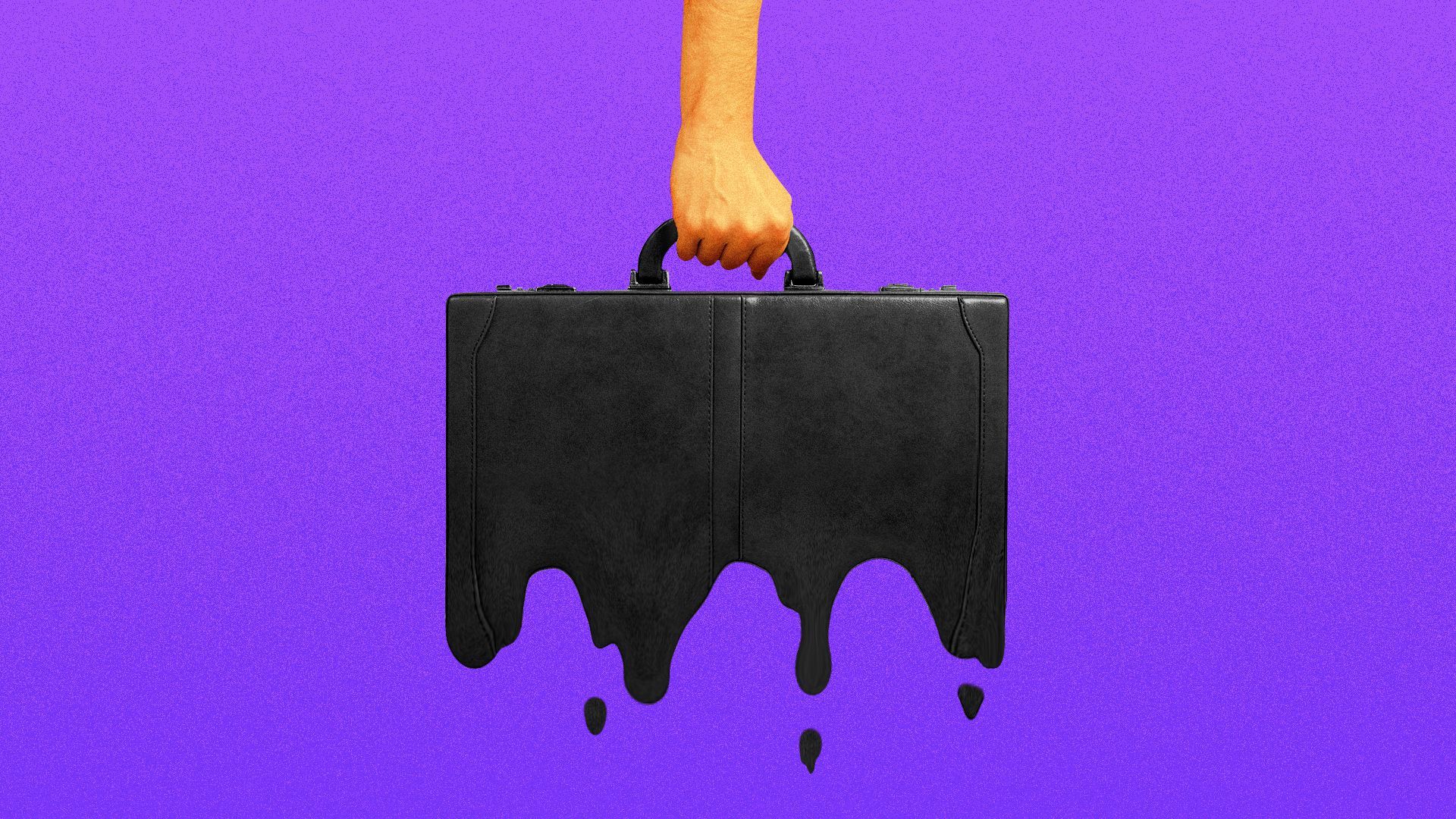A new era of worker malaise
Add Axios as your preferred source to
see more of our stories on Google.

Illustration: Aïda Amer/Axios
The collision of three unprecedented events — the pandemic, its economic toll and an uprising against racial injustice — is causing an extraordinary level of angst among workers.
Why it matters: High anxiety levels are touching employees in nearly every industry — as measured by the Axios-Ipsos Coronavirus Index and other polls — and labor unrest could be bubbling beneath the surface.
- For example, 43% of Americans in last week's Axios-Ipsos coronavirus survey reported that they were concerned about their job security, and 44% said they were worried about their ability to pay their bills.
The big picture: There's been a tremendous downward shift in worker power in record time.
- This time last year, the unemployment rate was near a 50-year low. Jobs were plentiful, and corporations were bending over backwards to get employees to work for them.
- The dynamic has vastly changed, with the jobless rate at some of the highest levels in nearly a decade (though falling).
The unemployed are unsure if their jobs will ever come back. The $600 per week boost in unemployment benefits shoring up their finances has expired — and is unlikely to return.
- Some workers furloughed at the onset of the pandemic are still in purgatory, but signs are cropping up that job losses may become permanent.
- MGM Resorts said last week that 18,000 workers furloughed in March are now permanently out of work.
Those who do have jobs wonder how much longer they’ll have a paycheck.
- Airline workers got a six-month reprieve from job cuts under the federal CARES Act, but travel demand remains low and isn’t expected to return to pre-pandemic levels until 2024.
- “Airlines have downsized their companies already through voluntary measures. Unfortunately, that’s not going to be enough,” Airlines for America CEO Nicholas Calio told reporters this week.
- Without more federal aid, tens of thousands of employees will be furloughed Oct. 1.
- “Keeping people in this state of uncertainty is a certain kind of cruelty all in itself,” Sara Nelson, president of the flight attendants union, told Axios.
Some workers face a previously unfathomable tradeoff: quit their job or keep it, but at the risk of potentially contracting the virus.
- Amnesty International says the United States is among the worst countries for health care worker deaths from the pandemic.
- "I hear a lot of trepidation, a lot of fear, a lot of anxiety," Randi Weingarten, the head of the American Federation of Teachers, told Axios. "There are no good choices right now."
Black workers are calling on employers to take greater action against structural racism.
- Young workers saw racism both in police violence and in the hugely disproportionate impact the virus was having on people of color, Damon Silvers, AFL-CIO's director of policy, told Axios.
The bottom line: "The everyday middle-class workers are breaking from the stress of this pandemic," Mary Grimmer, who owns Little Treasures Schoolhouse, a Massachusetts-based child care organization, told Axios' Erica Pandey.
- "People are really snapping, and you can see it."

